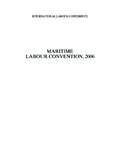Transcription of Cape Economics Syllabus
1 caribbean Advanced Proficiency Examination . Syllabus . Economics . CXC A20/U2/09. Effective for examinations from May June 2010. Published by the caribbean Examinations Council. Correspondence related to the Syllabus should be addressed to: The Pro-Registrar caribbean Examinations Council Caenwood Centre 37 Arnold Road, Kingston 5, Jamaica Telephone Number: + 1 (876) 630-5200. Facsimile Number: + 1 (876) 967-4972. E-mail Address: Website: Copyright caribbean Examinations Council (2009). The Garrison, St Michael BB14038, Barbados CXC A20/U2/09.
2 Contents RATIONALE .. 1. AIMS .. 2. SKILLS AND ABILITIES TO BE ASSESSED .. 2. PRE-REQUISITES OF THE Syllabus .. 3. STRUCTURE OF THE Syllabus .. 3. UNIT 1: MICROECONOMICS. MODULE 1: METHODOLOGY: DEMAND AND SUPPLY .. 4. MODULE 2: MARKET STRUCTURE, MARKET FAILURE AND INTERVENTION .. 12. MODULE 3: DISTRIBUTION THEORY .. 17. UNIT 2: MACROECONOMICS. MODULE 1: MODELS OF THE 22. MODULE 2: MACROECONOMIC PROBLEMS AND POLICIES .. 28. MODULE 3: GROWTH, SUSTAINABLE DEVELOPMENT AND GLOBAL RELATION ..36. OUTLINE OF ASSESSMENT .. 44. REGULATIONS FOR PRIVATE CANDIDATES.
3 55. REGULATIONS FOR RESIT 56. ASSESSMENT GRID .. 57. RESOURCES .. 58. 59. CXC A20/U2/09. This document CXC A20/U2/09 replaces CXC A20/U2/03 issued in 2003. Please note that the Syllabus was revised and amendments are indicated by italics. First Issued 2003. Revised 2009. Amended 2016. Please check the website for updates on CXC's syllabuses. CXC A20/U2/09. T. Introduction T he caribbean Advanced Proficiency Examination (CAPE ) is designed to provide certification of the academic, vocational and technical achievement of students in the caribbean who, having completed a minimum of five years of secondary education, wish to further their studies.
4 The examinations address the skills and knowledge acquired by students under a flexible and articulated system where subjects are organised in 1-Unit or 2-Unit courses with each Unit containing three Modules. Subjects examined under CAPE may be studied concurrently or singly. The caribbean Examinations Council offers three types of certification at the CAPE level. The first is the award of a certificate showing each CAPE Unit completed. The second is the CAPE . Diploma, awarded to candidates who have satisfactorily completed at least six Units, including caribbean Studies.
5 The third is the C X C Associate Degree, awarded for the satisfactory completion of a prescribed cluster of eight CAPE Units including caribbean Studies, and Communication Studies and Integrated Mathematics. Integrated Mathematics is not a requirement for the CXC. Associate Degree in Mathematics. The complete list of Associate Degrees may be found in the CXC. Associate Degree Handbook. For the CAPE diploma and the Associate Degree, candidates must complete the cluster of required Units within a maximum period of five years. To be eligible for a CXC Associate Degree, the educational institution presenting the candidates for the award, must select the Associate Degree of choice at the time of registration at the sitting (year) the candidates are expected to qualify for the award.
6 Candidates will not be awarded an Associate Degree for which they were not registered. CXC A20/U2/09. T. Economics Syllabus RATIONALE. Economics is the study of how society provides for itself by making the most efficient use of scarce resources so that both private and social welfare may be improved. The subject, therefore, covers the study of individuals, households, firms, government and international economic institutions as they attempt to make better use of scarce resources. The study of Economics enables individuals to develop a better understanding of the economic issues which affect them and the world in which they live.
7 It will also enable students to offer informed comments on economic matters. The knowledge gained from this course in Economics will be of lifelong value to the student, since the Syllabus seeks to develop professional, technical/vocational and entrepreneurial skills which are relevant to the field of Economics . The influence of the subject on all areas of activity should stimulate the individual to continue reading and conducting research in Economics . It is recognised that persons doing this course may be drawn from different backgrounds and may possess different interests.
8 Some may wish to study Economics as preparation for further specialisation in the subject. Others may study the subject to complement other subject disciplines, such as, careers in finance, accounting or law. Some students may see the subject as one worthy of study in its own right. Students of Economics will be able to contribute, significantly, to economic and social development in the caribbean and the wider world by acting as catalysts for wider awareness of social and economic issues. A study of Economics at the CAPE level will be of benefit to all students by introducing them to the philosophy which underlies everyday economic interactions.
9 The study will also train the student to think logically, critically and impartially on a variety of contentious issues. Ultimately, this course of study in CAPE Economics will develop the Ideal caribbean Person who, as articulated by CARICOM Heads of Government at their 18th Summit, is emotionally secure with a high level of self-confidence and self-esteem; demonstrates multiple literacies, independent and critical thinking; questions the practices of past and present and brings this to bear on the innovative application of science and technology to problem solving; has a positive work attitude.
10 And values and displays creative imagination and entrepreneurship. In keeping with the UNESCO Pillars of Learning, on completion of this course of study, students will learn to know, to do, to be, and to transform themselves and society. AIMS. The Syllabus aims to: 1. promote understanding of the basic principles and concepts of Economics which are accepted in large measure by economists while recognising that the field is changing continuously;. 2. develop an appreciation of the various methods used by economists in analysing economic problems.


